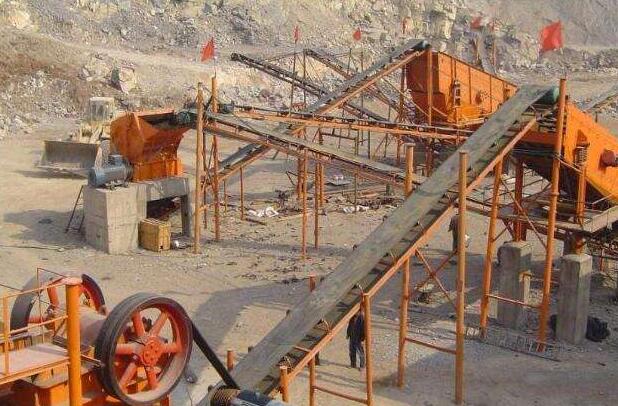The usage of rock crushers, particularly those listed under the ‘rock crusher for sale‘ category, has been a significant topic of discussion among various industries. These machines, known for their efficiency in crushing large rocks into smaller, usable pieces, have considerable economic and environmental impacts that are worth exploring.
Economically, rock crushers contribute to several industries’ productivity, including mining, construction, and recycling. Due to the increasing demand for these sectors, the market for rock crushers has expanded significantly. More companies are keen on listing their rock crusher for sale, catering to the rising demand. This economic activity contributes to job creation and boosts local economies where rock crusher manufacturing businesses are located.
In the mining sector, rock crushers have a significant economic impact. They reduce the size of ore deposits for extraction, thus increasing the production rate. In the construction industry, they play a crucial role in producing materials such as gravel and sand used in building infrastructure.
Furthermore, rock crushers offer an economic benefit in the recycling industry by reducing waste. Construction and demolition waste can be transformed into reusable materials, reducing the need for new raw materials and decreasing costs. Using a rock crusher for sale in the recycling sector thus contributes to a circular economy, promoting sustainability and resource efficiency.
However, the operation of rock crushers has environmental implications. The use of these machines can lead to dust and noise pollution. Dust emissions from rock crushers can adversely affect air quality, especially in enclosed spaces and densely populated areas. Noise pollution is another concern as rock crushers can produce high sound levels, leading to disturbance and potential health risks for workers and nearby residents.
Moreover, the energy consumption of rock crushers, especially older models, can be significant. This high energy usage can contribute to carbon emissions if the energy source is fossil fuels. Hence, companies offering a rock crusher for sale must consider the energy efficiency of their products to mitigate environmental impacts.
However, there are ways to alleviate these environmental issues. For instance, dust control measures like water sprays and dust suppressant chemicals can minimize dust emissions. Noise-damping materials can be used to reduce noise pollution. Regarding energy consumption, developing more energy-efficient rock crushers and using renewable energy sources can lower carbon emissions.
In the search for a rock crusher for sale, potential buyers should consider both the economic benefits and environmental implications. The economic gains are evident in terms of productivity and cost-effectiveness. However, it is vital to mitigate the environmental impacts to ensure sustainable operations. By considering these factors, industries can make informed decisions that balance economic and environmental considerations.
In conclusion, using rock crushers has significant economic benefits, contributing to various industries’ productivity and growth. However, their operation also brings certain environmental challenges. As the market for rock crushers expands, stakeholders should ensure that both economic benefits and environmental sustainability are considered to achieve a balanced approach.

